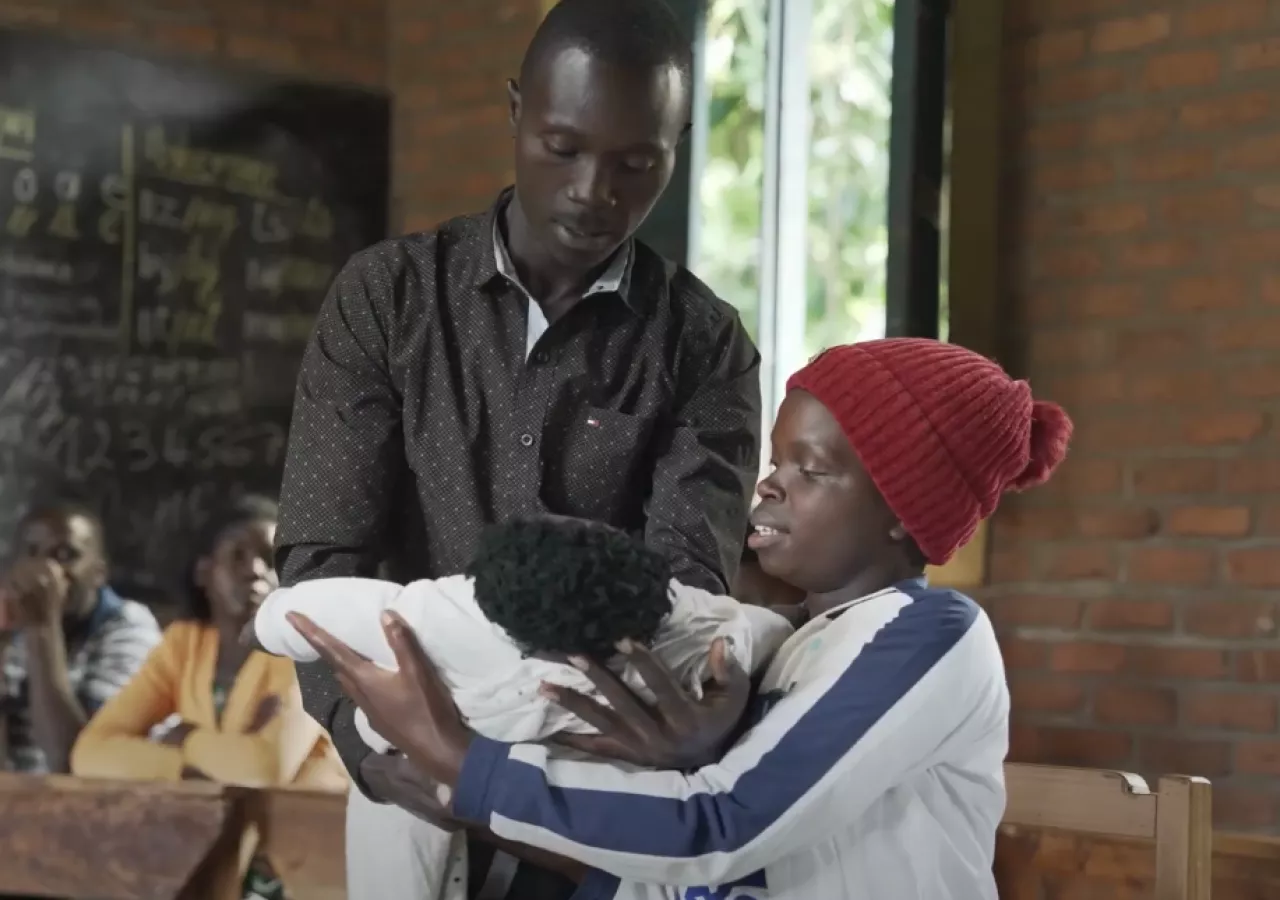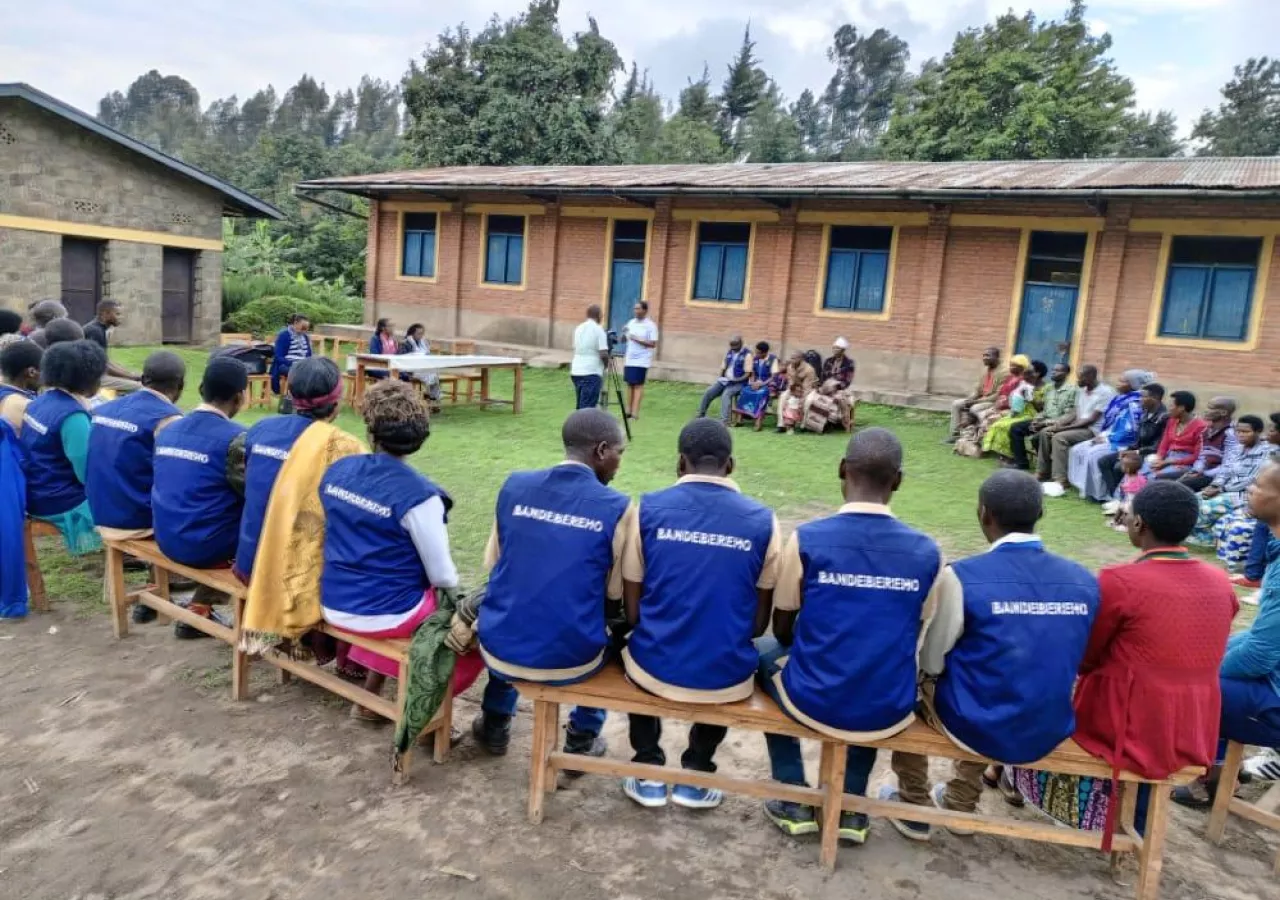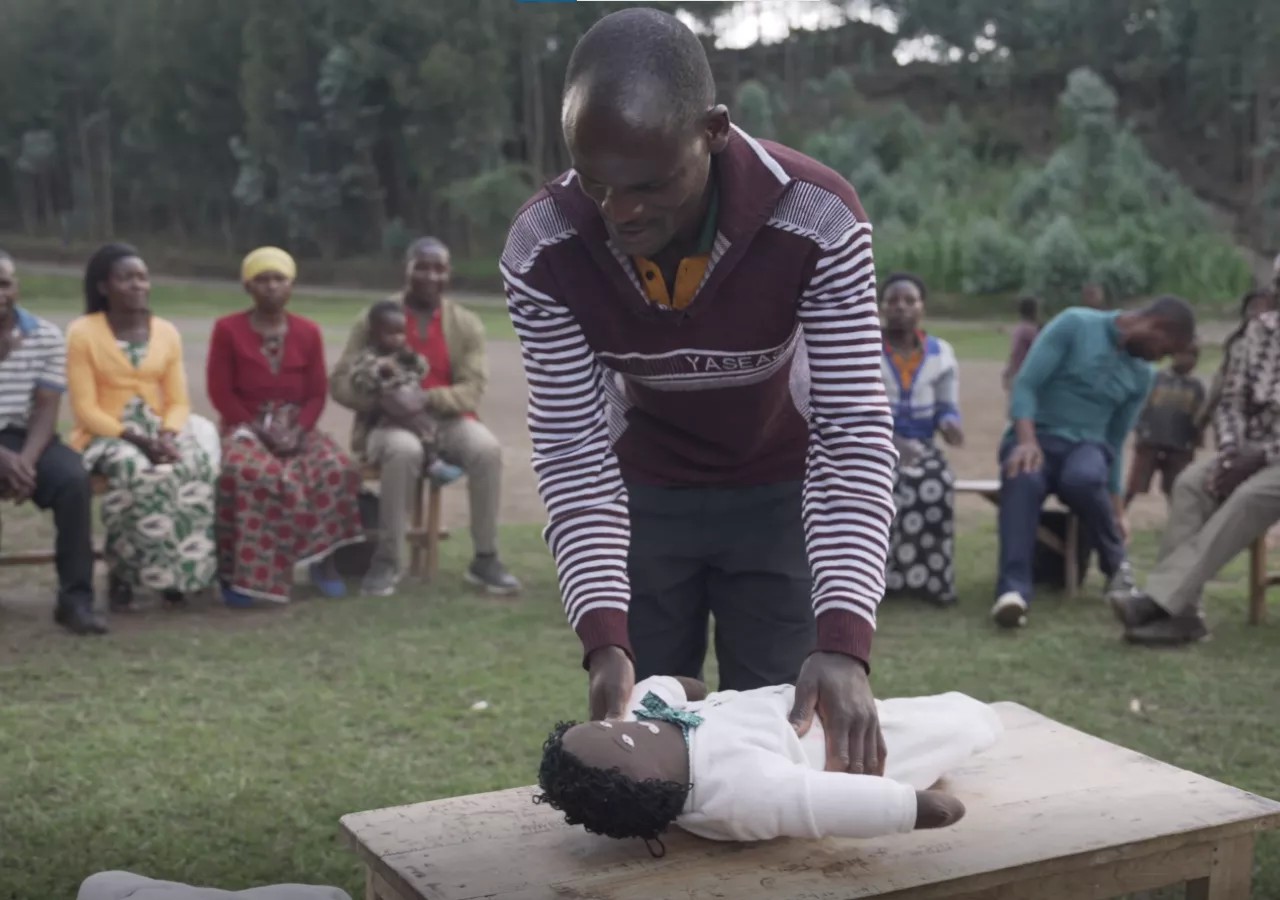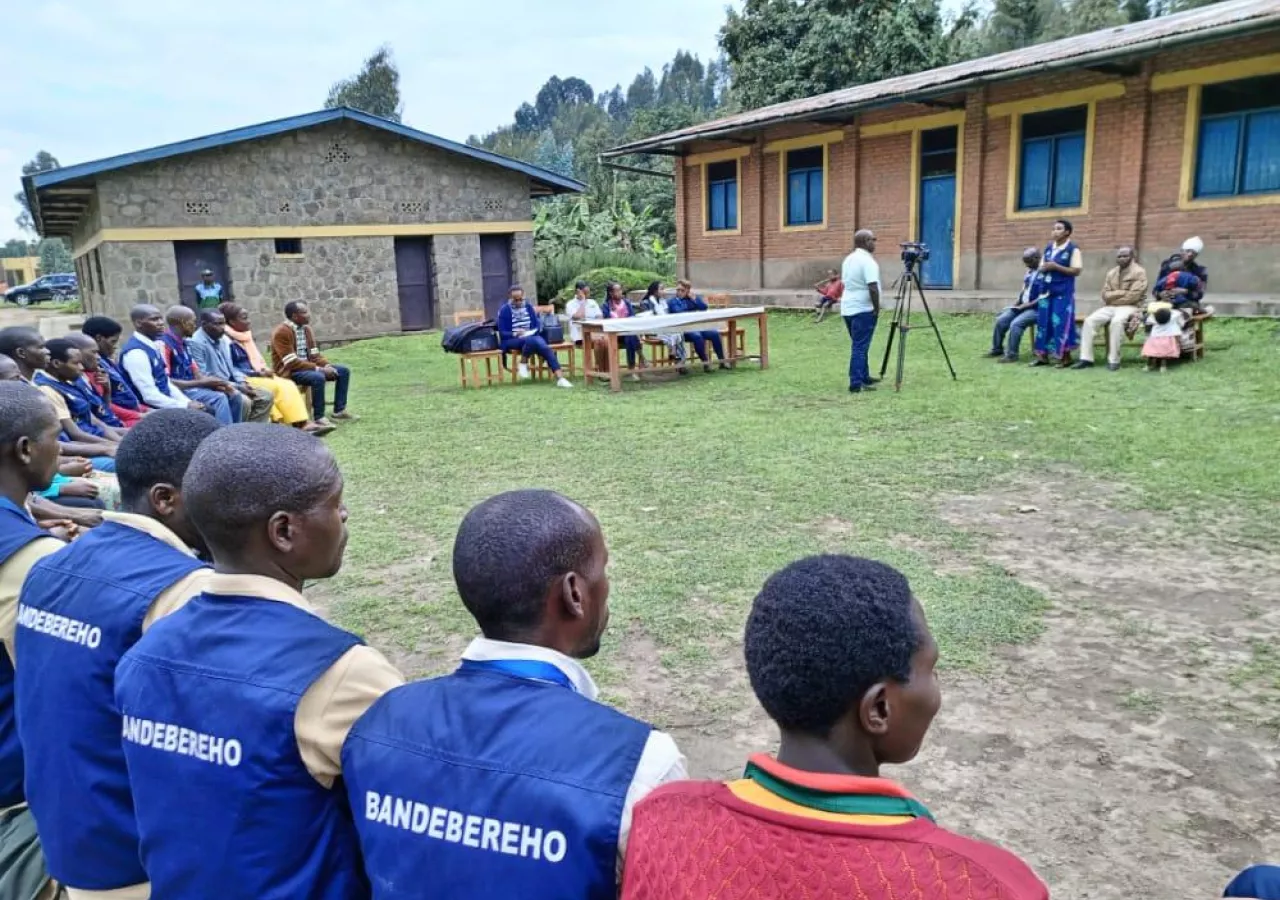Bandebereho

Location
Rwanda
Sector
Gender
Type of Investment
Grant
Project Stage
Test & Transition
Length of Investment
2023+
Website
Investment Overview
Bandebereho (‘role model’ in Kinyarwanda) is a contextually responsive intervention by RWAMREC. The aim of the program is to transform masculinity norms using fatherhood as a focal point, engaging expectant and young fathers in Rwanda on positive fatherhood, maternal and new-born health, violence prevention, and unpaid care work. The intervention takes place via a 15-session participatory and structured curriculum with community role models.
The Development Challenge
Rwanda has made strides in enacting gender equality laws, yet gender gaps persist. This is especially the case in education, health, and personal autonomy, particularly in rural areas, reinforced by harmful social norms. While many interventions target women, meaningful engagement with men and boys is crucial to dismantle patriarchal norms. Men are gatekeepers who hold power in society and uphold patriarchal norms, but they are also allies in the struggle for gender equality . Whilst significant power imbalances remain, sensitising women is not enough and can even result in unintended consequences, such as increased intimate partner violence

The Innovation
Bandebereho, an evidence-based innovation by Rwanda Men's Resource Centre (RWAMREC), uses fatherhood as an entry point to engage men and their female partners. The intervention covers maternal and new-born health, violence prevention, and unpaid care work via participatory, structured sessions led by community role models. Bandebereho is a contextually responsive programme adapted by RWAMEC from a programme by Equimondo. Results from rigorous testing show sustained impacts, including reduced intimate partner violence, improved antenatal care, and better mental health outcomes for men, among others. RWAMREC's collaboration with the Rwandan government aligns the program with national priorities, prompting integration trials with government health systems.

Our Investment
With a grant of $1.8 million, GIF anchors a $4.5 million investment goal over five years, with the remaining amount coming from other funders. RWAMREC will seek to improve delivery via community health workers (CHWs), assess the programme’s cost effectiveness, increase uptake to at least three districts, and monitor programme outcomes and integration with CHWs and government monitoring systems.

Progress to date
As part of their ongoing partnership with the government, RWAMREC has signed Memorandums of Understandings with the Rwanda Biomedical Centre and the Ministry of Health, and is working with the government to align and incorporate Bandebereho's monitoring indicators within national health systems. Bandebereho has now been implemented in three districts in Rwanda. Also, RWAMREC has secured CAD 2 million towards the USD 4.5 million larger scale budget.

Bandebereho in numbers
parents reached in Musanze
parents reached in Burera
GIF grant
Innovating for Gender Equality
GIF is excited to be partnering with RWAMREC through our Innovating for Gender Equality sub fund to support the refinement and testing of Bandebereho's scale up in Rwanda. RWAMREC is a leading voice on male engagement in Rwanda, with extensive experience in the gender equality landscape. Rwanda itself has made great strides in advancing gender equality including through strong political commitment, legislation, and policy frameworks. This test for scale up of Bandebereho through community health workers and integration with government health systems will draw useful evidence on effective norms change at the grassroots level in a country with strong government commitment for gender equality. Meaningful male engagement remains critical for increasing women’s agency through transforming the social and gender norms that reinforce patriarchy and inequality. The scale-up of Bandebereho has the potential to directly and indirectly impact men, women, and children by reducing gender-based violence and child abuse, increasing women’s agency, and improving mental health outcomes in men.